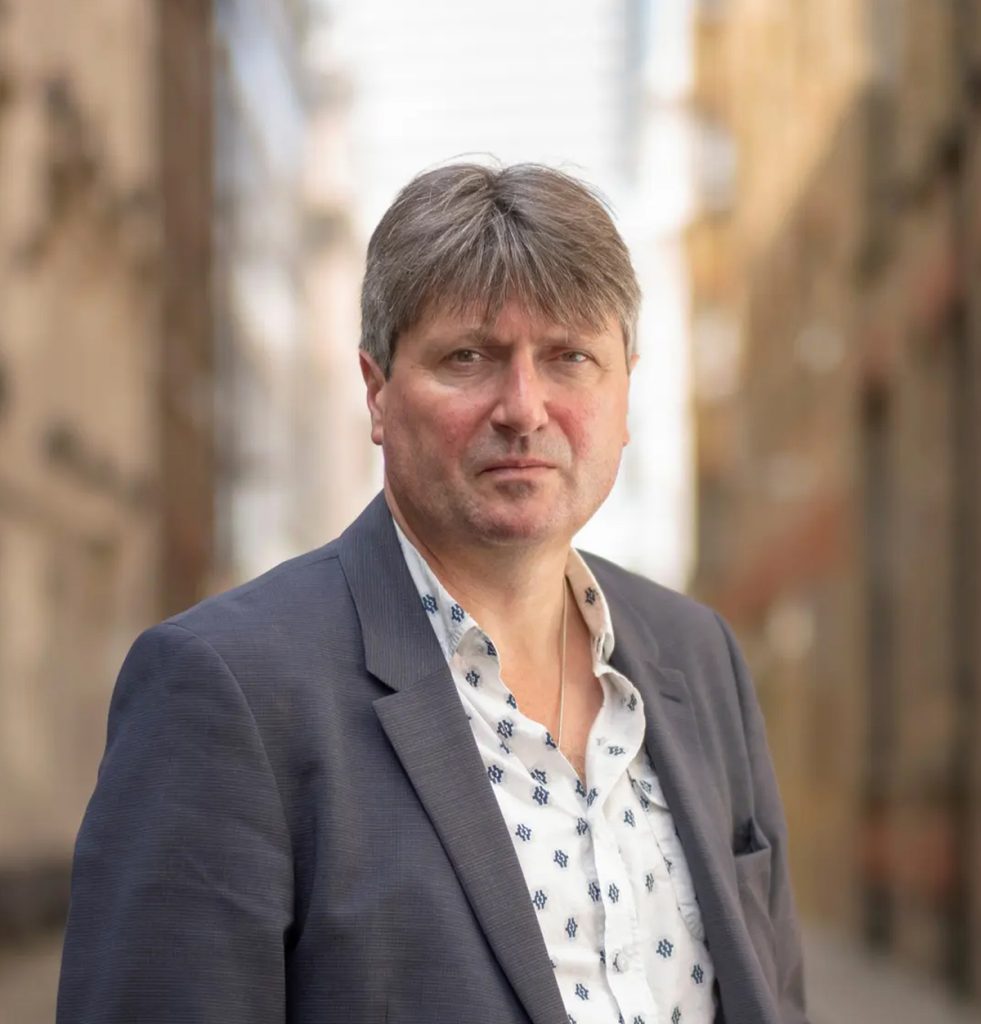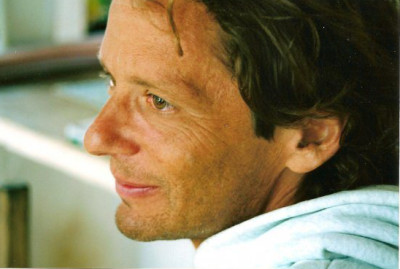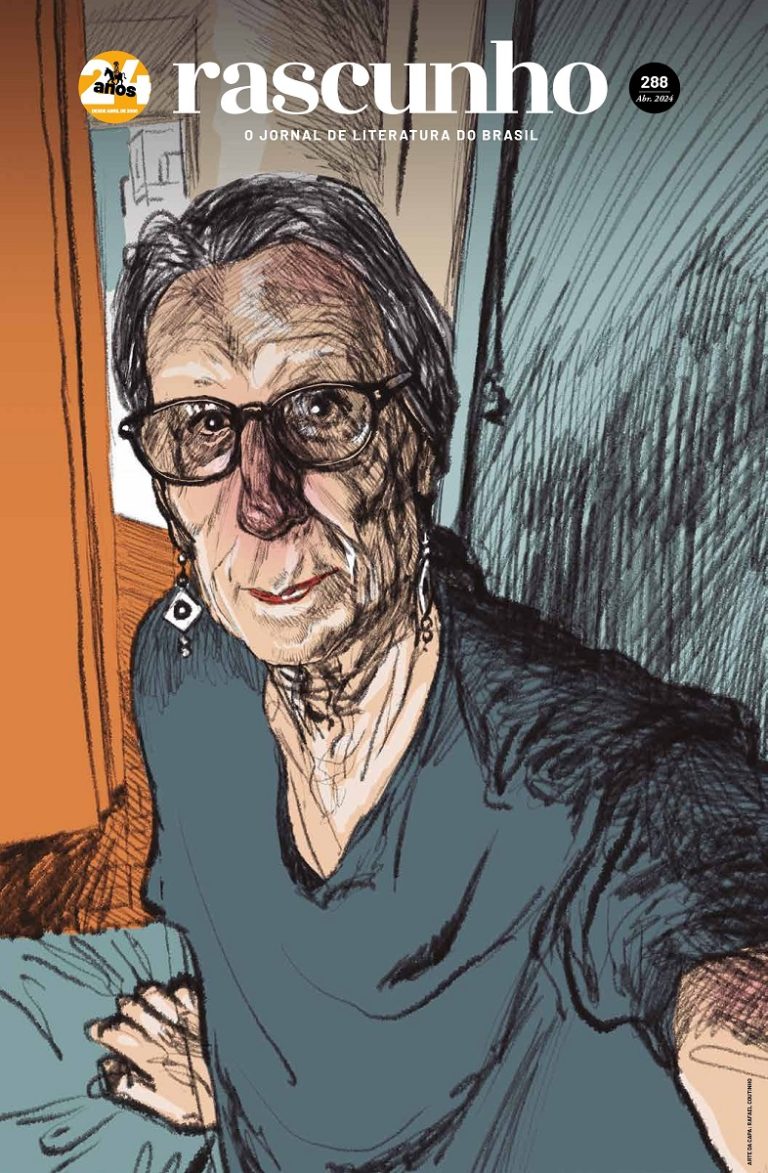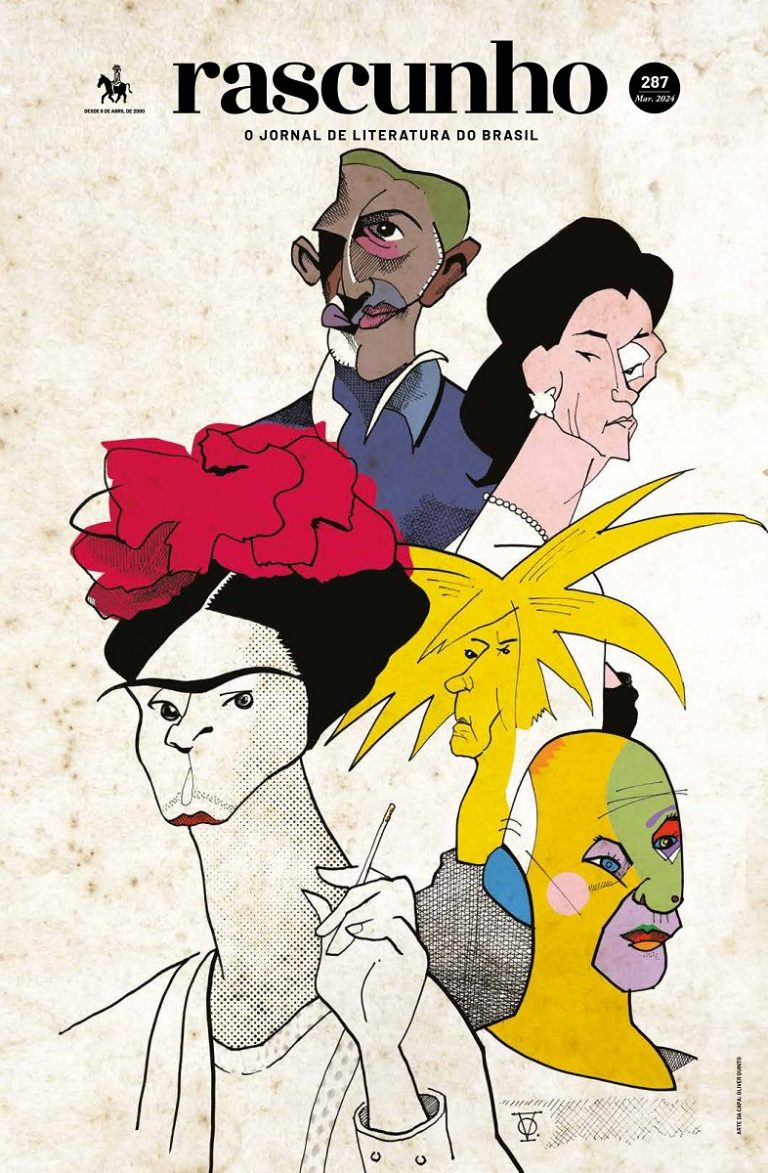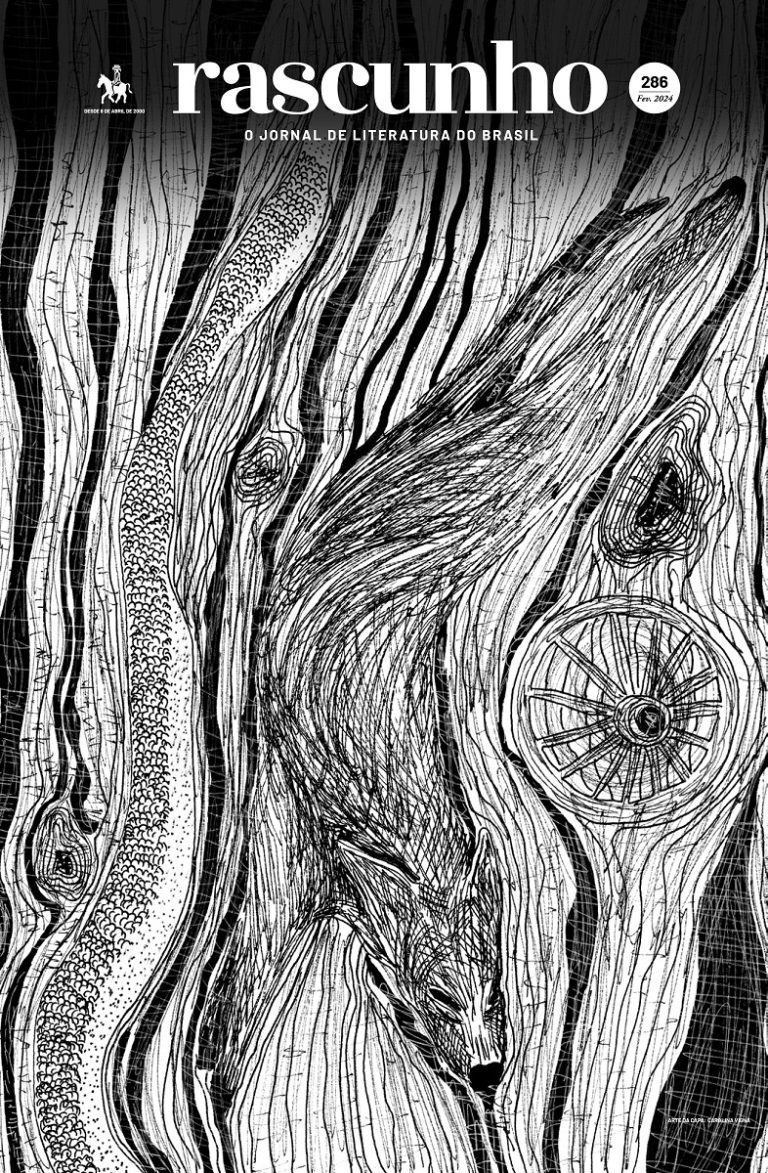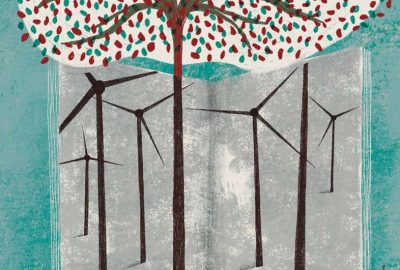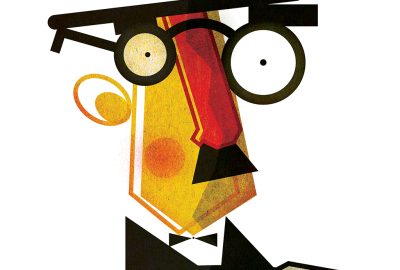Tradução e seleção: André Caramuru Aubert
November
We walk to the ward from the badly parked car
with your grandma taking four short steps to our two.
We have brought her here to die and we know it.
You check her towel, soap and family trinkets,
pare her nails, parcel her in the rough blankets
and she sinks down into her incontinence.
It’s time, John. In their pasty bloodless smiles,
in their slack breasts, their stunned brains and their baldness,
and in us, John: we are almost these monsters.
You’re shattered. You give me the keys and I drive
through the twilight zone, past the famous station
to your house, to numb ourselves with alcohol.
Inside, we feel the terror of dusk begin.
Outside we watch the evening, failing again,
and we let it happen. We can say nothing.
Sometimes the sun spangles and we feel alive.
One thing we have to get, John, out of this life.
Novembro
Do carro mal estacionado vamos para a enfermaria
com sua avó dando quatro passos curtos para cada dois nossos.
Nós a trouxemos para cá para morrer e sabemos disso.
Você confere a toalha, o sabonete e as bugigangas dela,
corta as unhas, acomoda-a em cobertores rústicos,
e ela naufraga na incontinência.
Está na hora, John. Nos pálidos e pastosos sorrisos delas,
nos seios flácidos, nos cérebros aturdidos e nas cabeças carecas,
e em nós, John: nós somos em parte estes monstros.
Você está despedaçada. Você me passa as chaves e eu dirijo
rumo ao crepúsculo do dia, passando pela famosa estação
até sua casa, para nos entorpecermos de álcool.
Dentro, sentimos começar o terror do anoitecer.
Fora, observamos a noite caindo novamente,
e nós deixamos acontecer. Não conseguimos dizer nada.
Às vezes o sol cintila e nos sentimos vivos.
Alguma coisa a gente precisa tirar, John, desta vida.
…
Paper aeroplane
The man sitting next to me on the flight
was reading a blank book, keen eyes
panning left to right across empty leaves, fingers
turning from one white space to the next.
Sometimes he’d nod agreeably or shake his head,
or painstakingly underline some invisible text
with red ink, or decorate the margin
with an exclamation mark or asterisk.
It was a hefty-looking tome, hand-stitched
but wordless front and back and down the spine.
Coming in to land he laid the silver ribbon-marker
between two bare pages to save his place.
I was wearing noise-cancelling headphone,
listening to fine mist. When he leaned across
and shouted, “Forgive the intrusion, but
would you sign this for me? I think it’s your best”.
Aviãozinho de papel
O sujeito sentado ao meu lado, no avião
lia um livro em branco, os olhos atentos
indo da esquerda para a direita pelas páginas vazias, os dedos
virando de uma página em branco para a seguinte.
Algumas vezes ele parecia concordar, balançava a cabeça,
ou marcava, meticuloso, algum texto invisível
com tinta vermelha, ou decorava a margem
com um sinal de exclamação ou asterisco.
Era um volume parrudo, costurado a mão
mas sem nada escrito na capa, contracapa ou lombada.
Antes de pousarmos, ele enfiou um marcador prateado
entre duas páginas vazias, para guardar seu lugar.
Eu estava usando tampões de ouvidos,
escutando a névoa suave. Quando ele se inclinou sobre
mim e falou alto, “Desculpe a intromissão, mas
você autografaria o livro para mim? Acho que é o seu melhor”.
…
Mist
Who does it mourn?
What does it mean,
such nearness,
gathering here
on high ground
while your back was turned,
drawing its net curtains around?
Featureless silver screen, mist
is water
in its ghost state,
all inwardness,
holding its milky breath,
veiling the pulsing machines
of great cities
under your feet,
walling you
into these moments
into this anti-garden
of gritstone and peat.
Given time
the edge of your being
will sleep
into its fibreless fur;
you are lost, adrift
in hung water and blurred air,
but you are here.
Névoa
A quem ela vela?
O que representa,
essa proximidade,
essa reunião, aqui,
em terras altas
enquanto suas próprias costas se viram,
para puxar as cortinas rendadas?
Tela prateada sem recursos, a névoa
é água
num estado fantasmal,
toda voltada para si,
segurando o hálito de leite,
dissimulando as máquinas das
grandes cidades a pulsar
sob seus pés,
emparedando-a
dentro desses momentos
dentro desse não-jardim
de arenito e turfa.
Com o tempo
a extremidade de seu ser
vai dormir, lá
dentro de sua pele sem fibras;
você está perdida, à deriva
em água suspensa e ar turvo,
mas está aqui.
…
Poem
And if it snowed and snow covered the drive
he took a spade and tossed it to one side.
And always tucked his daughter up at night.
And slippered her the one time that she lied.
And every week he tipped up half of his wage.
And what he didn’t spend each week he saved.
And praised his wife for every meal she made.
And once, for laughing, punched her in the face.
And for his mum he hired a private nurse.
And every Sunday taxied her to church.
And he blubbed when she went from bad to worse.
And twice he lifted ten quid from her purse.
Here’s how they rated him when they looked back:
sometimes he did this, sometimes he did that.
Poema
E se nevasse e a neve cobrisse a entrada
ele pegava a pá e limpava o caminho.
E sempre ninava sua filha à noite.
E deu-lhe uma chinelada quando ela mentiu.
E a cada semana dava para a esposa metade do salário.
E o que não gastava a cada semana ele poupava.
E elogiava sua mulher por cada refeição preparada.
E uma vez, porque ela riu, socou-a no rosto.
E para sua mãe contratou uma enfermeira.
E toda semana a levava à igreja.
E ele chorou quando ela passou de mal a pior.
E por duas vezes surrupiou dez libras de sua bolsa.
Eis o que disseram dele quando olharam para trás:
algumas vezes era de um jeito, outras vezes de outro.
…
Evening
You’re twelve. Thirteen at most.
You are leaving the house by the back door.
There’s still time. You’ve promised
not to be long, not to go far.
One day you’ll learn the names of the trees.
You fork left under the ridge,
pick up the bridleway between two streams.
Here is Wool Clough. Here is Royd Edge.
The peak still lit by sun. But
evening. Evening overtakes you up the slope.
Dusk walks its fingers up the knuckles of your spine.
Turn on your heel. Back home
your child sleeps in her bed, too big for a cot.
Your wife makes and mends under the light.
You are sorry. You thought
it was early. How did it get so late?
Noitinha
Você tem doze, no máximo treze anos.
Você sai de casa pela porta dos fundos.
Ainda há tempo. Você prometeu
não demorar, não ir longe.
Um dia você aprenderia os nomes das árvores.
Você pega a encruzilhada esquerda sob a serra,
pega a trilha entre dois riachos.
Aqui é Wool Clough. Aqui é Royd Edge.
O sol ainda ilumina o pico. Mas
a tarde. A tarde te alcança na encosta.
O crepúsculo passa os dedos pelos nós de suas costas.
Inverter os passos. De volta, em casa,
sua filha dorme na cama, já grande para o berço.
Sua esposa tricota e cose sob a luz.
Você pede desculpas. Pensou
que ainda era cedo. Como ficou tão tarde?
…
The shout
We went out
into the school yard together, me and the boy
whose name and face
I don’t remember. We were testing the range
of the human voice:
he had to shout for all he was worth,
I had to raise an arm
from across the divide to signal back
that the sound had carried.
He called from over the park — I lifted and arm.
Out of bounds,
he yelled from the end of the road,
from the foot of the hill,
from beyond the look-out post of Fretwell’s Farm —
I lifted and arm.
He vanished from sight, went on to be twenty years dead
with a gunshot hole
in the roof of his mouth, in Western Australia.
Boy with the name and face I don’t remember,
you can stop shouting now, I can still hear you.
O berro
Nós saímos
juntos para o pátio da escola, eu e o garoto
de cujo nome, e rosto
não me lembro. Testávamos o alcance
da voz humana:
ele tinha que berrar o mais alto que pudesse,
eu tinha que levantar um braço
desde o outro lado da cerca para mostrar
que o som chegara lá.
Ele berrou desde o alto do parque — eu levantei o braço.
Desde além dos arrabaldes,
ele gritou lá do fim da estrada,
lá do pé da colina,
desde além da guarita da fazenda Fretwell,
eu levantei o braço.
Ele sumiu de vista, foi-se para encontrar a morte, vinte anos depois
com um buraco de bala
no céu da boca, na Austrália Oriental.
Garoto cujo nome e rosto eu não me lembro,
você já pode parar de berrar, eu ainda posso ouvi-lo.

